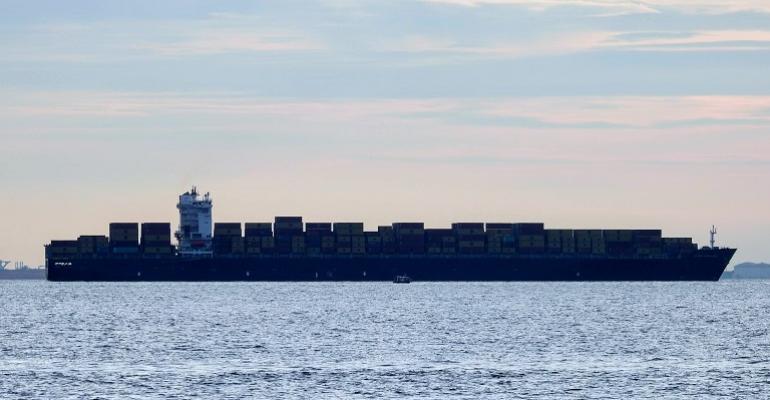The Xeneta Shipping Index (XSI) plunged by 4.7% in October, falling to 158.5 points, 62.3% lower than November last year. The XSI tracks real-time developments in global long-term contracted rates and has been supported recently by older contracts which date from 2022.
Speaking at TOC Asia earlier this week Ashna Mishra, Global Lead – Shipping Strategic Engagement and Intelligence for S&P Global Commodity Insights, said that shippers they spoke to about contracting in 2023 were not interested in signing long-term contracts. “Instead, they were open towards something more short term, for instance, a six-month contract or three months contract.”
Looking to contract negotiations for 2024 she said: “Shippers of course, would want to swing it in their favour, again, given that the freight rates have not really risen as such, and even the capacity management the carriers are trying is not really having an impact on how their freight market looks.”
Xeneta said the latest data suggests 2024 could be even more brutal for ocean carriers than expected so far.
Emily Stausbøll, Xeneta Market Analyst, said that the older contracts with higher rates have afforded some financial insulation throughout 2023. “However, we have still seen four of the major carriers post big financial losses in Q3,” she said, predicting that the situation will worsen as the new year dawns.
“Those older contracts will largely be replaced in the early part of next year and carriers will be left exposed to the current weak market,” she pointed out. “We can be absolutely certain the new contracts will be signed at much lower rates than those signed at this time last year, so if carriers are already reporting losses, what are they going to be next year? We could be talking about extremely big numbers.”
Pointing to Maersk’s $27m loss in earnings before interest and tax in the third quarter, she said this suggested there could be serious problems down the line when the XSI falls further. “We always knew there was a storm coming in Q1 2024 when the older contracts expired, but it seems as though it has arrived earlier than expected.”
Long-term contract rates still remain 39.5% above those in November 2020 but this had not proved enough to prevent some of the biggest liner companies from reporting losses. “The only way carriers can hope to avoid catastrophic financial losses in 2024 will be through capacity management, but it will be extremely tough to achieve,” Stausbøll warned.
In terms of overcapacity Alan Murphy, Sea Intelligence CEO and Founder, told the TOC Asia conference that in his most optimistic forecast the sector will have “massive oversupply” lasting until at least 2028.
Murphy sees some very lean years ahead for carriers. “So, I am very afraid that we are going to see the next 10 years are going to be like the 10 years before the pandemic, it's going to be a conversation, exclusively about oversupply.”
As to what that would look like Murphy explained that in February 2016 on the longest trade covered by the Shanghai Containerized Freight Index (SCFI) – Shanghai to Brazil – it cost just $99 per teu to ship a box halfway around the planet.
Copyright © 2024. All rights reserved. Seatrade, a trading name of Informa Markets (UK) Limited.
Add Seatrade Maritime News to your Google News feed.  |

